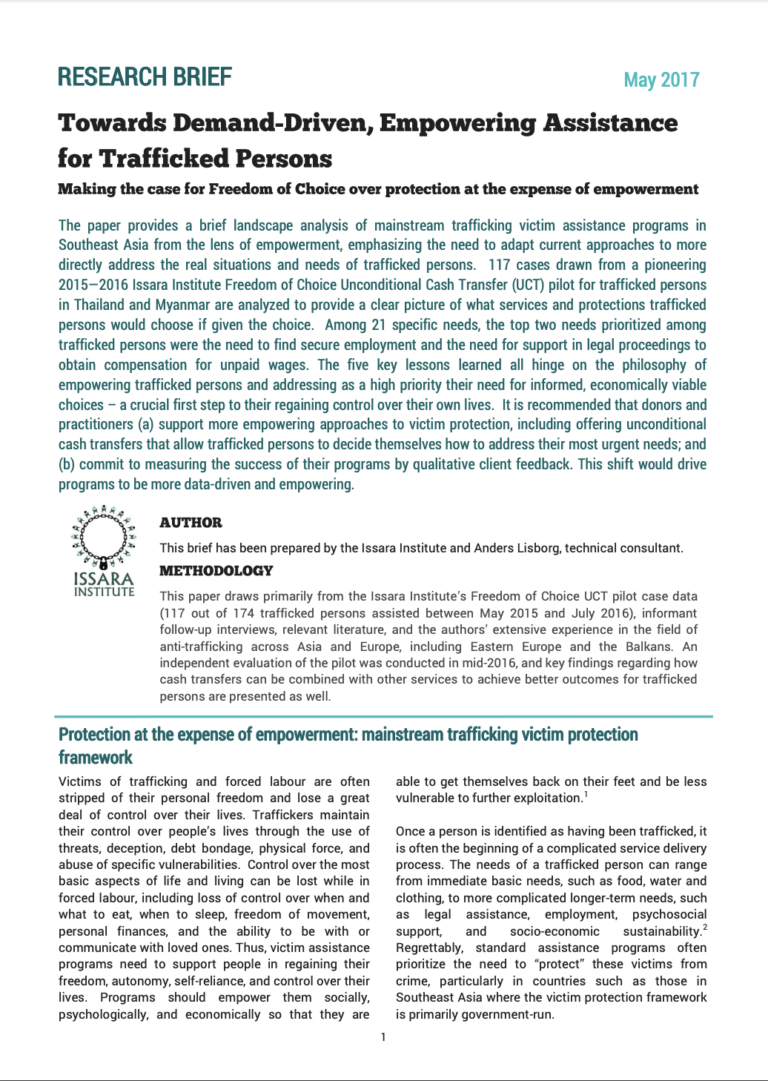This brief has been prepared by the Issara Institute and Anders Lisborg, technical consultant.
The paper provides a brief landscape analysis of mainstream trafficking victim assistance programs in Southeast Asia from the lens of empowerment, emphasizing the need to adapt current approaches to more directly address the real situations and needs of trafficked persons. 117 cases drawn from a pioneering 2015-2016 Issara Institute Freedom of Choice Unconditional Cash Transfer (UCT) pilot for trafficked persons in Thailand and Myanmar are analyzed to provide a clear picture of what services and protections trafficked persons would choose if given the choice. Among 21 specific needs, the top two needs prioritized among trafficked persons were the need to find secure employment and the need for support in legal proceedings to obtain compensation for unpaid wages. The five key lessons learned all hinge on the philosophy of empowering trafficked persons and addressing as a high priority their need for informed, economically viable choices– a crucial first step to their regaining control over their own lives. It is recommended that donors and practitioners (a) support more empowering approaches to victim protection, including offering unconditional cash transfers that allow trafficked persons to decide themselves how to address their most urgent needs; and (b) commit to measuring the success of their programs by qualitative client feedback. This shift would drive programs to be more data-driven and empowering.

